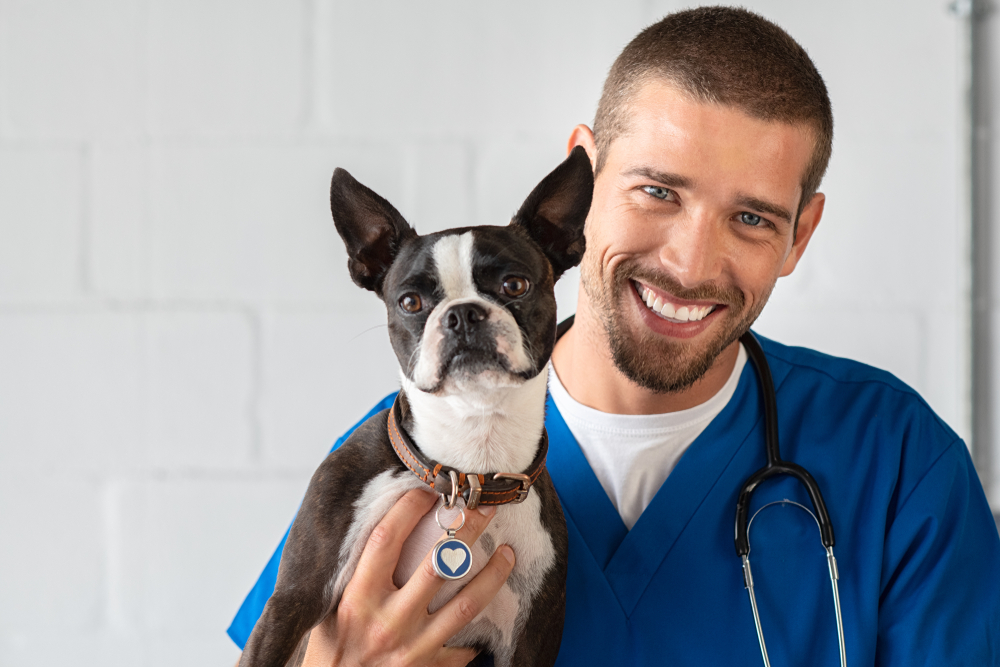Preparing For Your Pets Next Checkup

Regular veterinary checkups are essential for your pet’s overall well-being and longevity. A routine visit to the vet isn’t just about vaccines or illness treatment—it’s a proactive approach to your pet’s health. By being prepared for the appointment, you can make the most out of your visit and ensure that your furry friend receives the best care possible.
The Importance of Routine Veterinary Checkups
Pets, like humans, need regular health screenings to detect potential health issues early. Early diagnosis can make treatment easier and more effective, while also ensuring your pet lives a longer and happier life.
Preventative Care
One of the main benefits of regular checkups is preventative care. These visits allow your veterinarian to monitor your pet’s growth, weight, and overall health, keeping an eye out for any concerning changes.
Building a Relationship with Your Vet
Frequent visits help build trust between you, your pet, and your veterinarian. The more your vet knows about your pet’s baseline health, habits, and personality, the easier it is to identify when something is wrong.
Preparing for the Appointment
Proper preparation before your pet’s checkup can help minimize stress for both you and your pet. Follow these steps to ensure a smoother experience.
Gather Important Information
Your veterinarian will need as much information as possible to assess your pet’s health effectively. Prepare the following details ahead of time:
- Medical history: Bring a record of your pet’s medical history, including vaccination records and any prior illnesses or surgeries.
- Current medications: Make a list of any medications, supplements, or vitamins your pet is taking.
- Behavioral notes: If you’ve noticed any changes in your pet’s behavior, such as decreased energy, unusual eating habits, or increased aggression, note these observations.
Prepare Questions for the Veterinarian
To make the most of your visit, write down any questions or concerns you have in advance. Common topics to discuss may include:
- Changes in your pet’s appetite or weight
- Advice on dental hygiene or grooming
- Preventative treatments for parasites like fleas, ticks, and heartworms
- Information on age-related care for older pets
Pack the Essentials
Bring items that will make the visit more comfortable and efficient:
- Pet carrier or leash: Ensure your pet is safely contained.
- Comfort items: Bring a familiar blanket, toy, or treat to help calm your pet.
- Stool or urine sample: Your vet may request samples for diagnostic purposes, so check ahead if you need to collect these before the appointment.
What to Expect During the Checkup
Understanding what typically happens during a veterinary visit can help you and your pet feel more at ease.
Physical Examination
The vet will perform a comprehensive physical exam, checking your pet’s weight, eyes, ears, teeth, skin, coat, and overall body condition. This examination helps detect visible issues such as:
- Skin irritations or infections
- Ear infections
- Dental diseases, such as tartar buildup or gum inflammation
- Abnormal lumps or bumps
Vital Signs and Diagnostics
Your vet will check your pet’s vital signs, including temperature, heart rate, and respiration. If necessary, additional diagnostics such as blood tests, X-rays, or ultrasounds may be recommended to gather more information about your pet’s internal health.
Discussion of Findings and Recommendations
Once the examination is complete, the vet will discuss their findings and provide recommendations. This might include:
- Updating vaccinations
- Prescription of medications if needed
- Dietary adjustments for optimal health
- Preventative treatments for parasites or chronic conditions
Tips for Reducing Pet Anxiety
Veterinary visits can be stressful for some pets, but there are steps you can take to make the experience more positive.
Desensitization
If your pet is particularly anxious, consider taking them to the clinic for short, non-appointment visits. Let them become familiar with the sights, sounds, and smells of the office without undergoing an examination.
Positive Reinforcement
Reward your pet with treats and praise for calm behavior during the visit. Positive reinforcement can help your pet associate the vet’s office with good experiences.
Calming Aids
Ask your vet about calming aids, such as pheromone sprays or anxiety-reducing supplements, which can help soothe your pet during stressful situations.
Post-Appointment Care
After the visit, take time to care for your pet as they transition back to their normal routine.
Monitor for Side Effects
If your pet received vaccinations or treatments, monitor them for any adverse reactions, such as lethargy, swelling, or loss of appetite. Contact your vet if these symptoms persist or worsen.
Follow Care Instructions
Adhere to any instructions your vet provides, such as administering medications or making dietary changes. Prompt follow-through is crucial for effective treatment.
Plan Future Appointments
Before leaving the clinic, schedule the next checkup to maintain consistent care. Staying on top of routine visits helps prevent lapses in your pet’s health monitoring.
Common Questions About Veterinary Checkups
To further help pet owners prepare, here are answers to some frequently asked questions about pet checkups.
How Often Should My Pet Have a Checkup?
The frequency of checkups depends on your pet’s age, breed, and overall health. Generally:
- Puppies and kittens: Every 3-4 weeks until about 16 weeks of age
- Adult pets (1-7 years): Once per year
- Senior pets (7+ years): Twice per year or as recommended by your vet
How Long Does a Routine Checkup Take?
A typical checkup lasts between 20-30 minutes, but this can vary based on your pet’s needs and the services performed.
What Should I Do If My Pet Is Afraid of the Vet?
Work with your veterinarian to create a plan that minimizes stress. This might include scheduling visits during quiet times, using calming aids, or engaging in behavioral training.
The Benefits of Being Proactive
Taking an active role in your pet’s healthcare can significantly improve their quality of life. Regular checkups can catch health issues before they become severe, provide guidance for preventative care, and strengthen your bond with your pet.
By preparing thoroughly and staying informed, you can ensure your pet’s next vet visit is as smooth and productive as possible. Your efforts today will contribute to a healthier and happier future for your furry companion.
Need a Small Animal Hospital in Pauls Valley, OK?
At Williamsburg Small Animal Hospital, we are dedicated to ensuring the well-being of your pets, especially during the scorching summer months. If you have any concerns about keeping your furry friends safe and healthy in the heat, don’t hesitate to reach out to us. Our team of experienced veterinarians is here to provide you with personalized advice and top-notch care. Contact us today to schedule an appointment or to learn more about our services. Let’s work together to keep your pets safe and happy all summer long!
